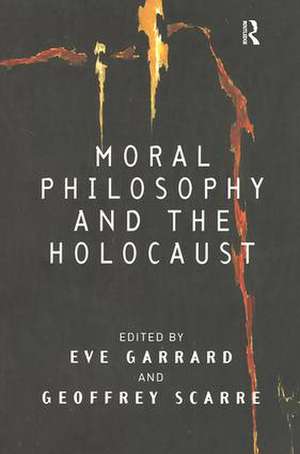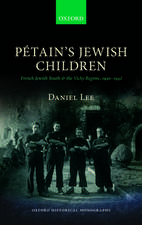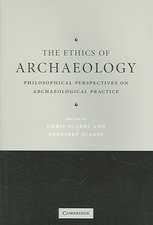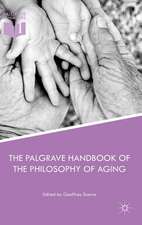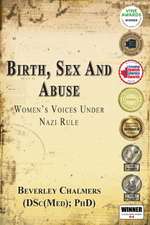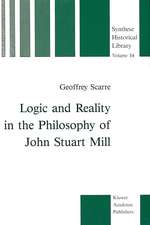Moral Philosophy and the Holocaust
Autor Eve Garrard, Geoffrey Scarreen Limba Engleză Paperback – 12 feb 2003
| Toate formatele și edițiile | Preț | Express |
|---|---|---|
| Paperback (1) | 389.38 lei 6-8 săpt. | |
| Taylor & Francis – 12 feb 2003 | 389.38 lei 6-8 săpt. | |
| Hardback (1) | 1000.27 lei 6-8 săpt. | |
| Taylor & Francis – 12 feb 2003 | 1000.27 lei 6-8 săpt. |
Preț: 389.38 lei
Nou
Puncte Express: 584
Preț estimativ în valută:
74.53€ • 77.51$ • 62.45£
74.53€ • 77.51$ • 62.45£
Carte tipărită la comandă
Livrare economică 13-27 martie
Preluare comenzi: 021 569.72.76
Specificații
ISBN-13: 9780754614166
ISBN-10: 0754614166
Pagini: 298
Dimensiuni: 156 x 234 x 16 mm
Greutate: 0.45 kg
Ediția:1
Editura: Taylor & Francis
Colecția Routledge
Locul publicării:Oxford, United Kingdom
ISBN-10: 0754614166
Pagini: 298
Dimensiuni: 156 x 234 x 16 mm
Greutate: 0.45 kg
Ediția:1
Editura: Taylor & Francis
Colecția Routledge
Locul publicării:Oxford, United Kingdom
Cuprins
Contents: Introduction, Eve Garrard and Geoffrey Scarre; Philosophy's contribution to Holocaust studies, Berel Lang; Ideology, moral complicity and the Holocaust, David E. Cooper; In a class of its own?, Norman Geras; Knowledge, history and the Holocaust, Tom Rockmore; Persons of lesser value: moral argument and the 'Final Solution', Hillel Steiner; Perpetrator motivation: some reflections on the Browning/Goldhagen debate, Nick Zangwill; Moral responsibility and the Holocaust, Geoffrey Scarre; Four types of mass murderer: Stalin, Hitler, Churchill, Truman, Douglas P. Lackey; Is limited altruism morally wrong?, Michael Freeman; Harming some to save others from the Nazis, Frances M. Kamm; Tragic decisions: removing Jewish children from their Christian guardians in post-war Europe, Daniel Statman; Forgiving the unforgivable?, Laurence Thomas; Forgiveness and the Holocaust, Eve Garrard; The Holocaust and the possibility of art, Oliver Leaman; The Holocaust in American Life as a moral
Recenzii
'This volume will serve as a valuable supplementary text in courses on moral reasoning and Holocaust studies.' Religious Studies Review
Descriere
How far can we ever hope to understand the Holocaust? What can we reasonably say about right and wrong, moral responsibility, praise and blame, in a world where ordinary reasons seem to be excluded? This book draws together new work by leading moral philosophers to present a wide range of perspectives on the Holocaust. Contributors focus on themes of central importance, including: moral responsibility for genocide; the moral uniqueness of the Holocaust; responding to extreme evil; the role of ideology; the moral psychology of perpetrators and victims of genocide; forgiveness and the Holocaust; and the impact of the `Final Solution` on subsequent culture. Topics are treated with the precision and rigour characteristic of analytic philosophy. Scholars, teachers and students with an interest in moral theory, applied ethics, genocide and Holocaust studies will find this book of particular value, as will all those seeking greater insight into ethical issues surrounding Nazism, race-hatred and intolerance.
